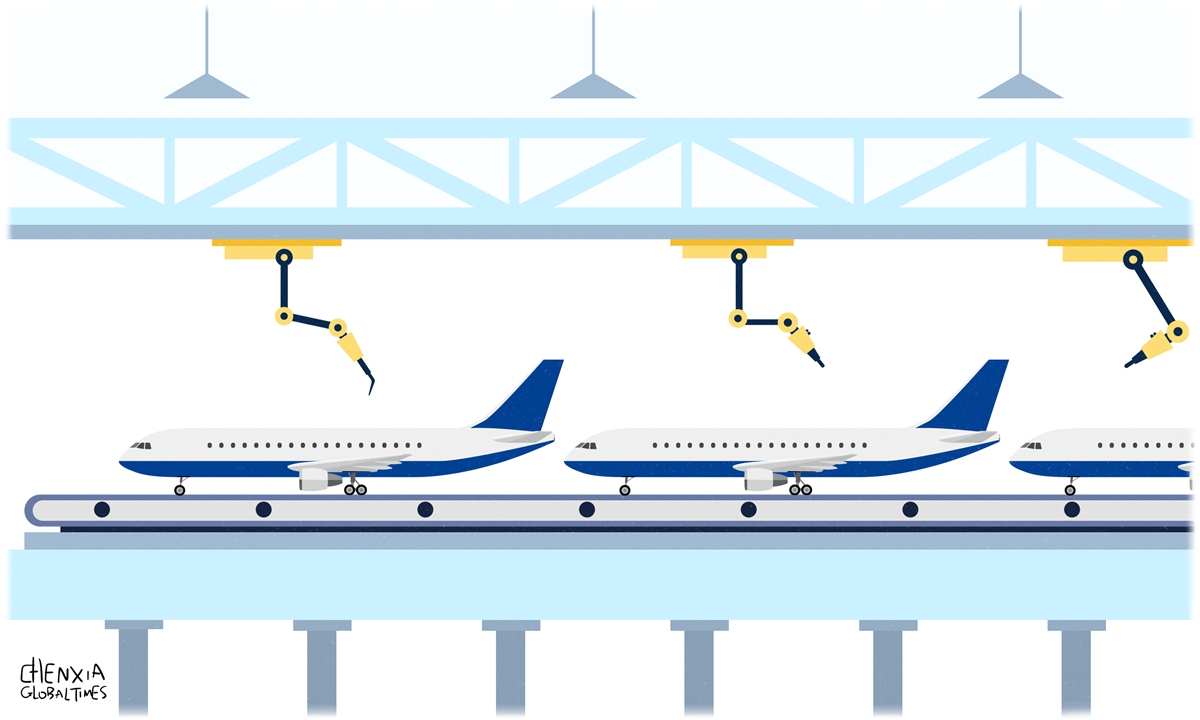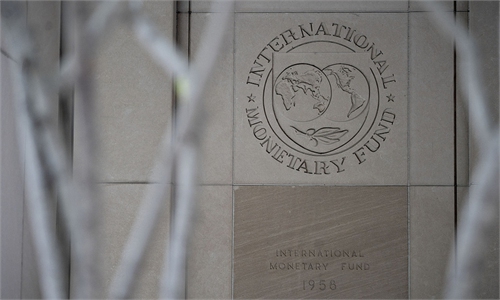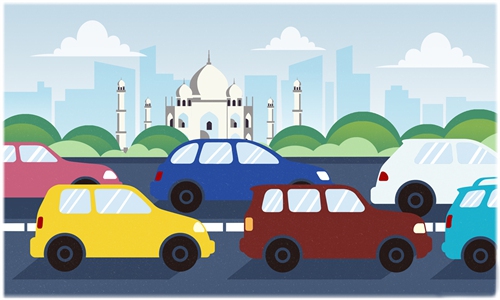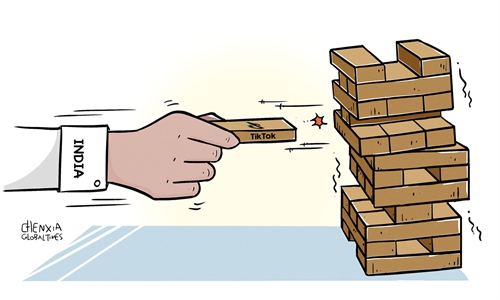
Illustration: Chen Xia/Global Times
After US aerospace giant Boeing announced one of the largest orders in its history, some claimed the deal reflects the strength of the US-India economic partnership. These assertions are oversimplified and overoptimistic.On Tuesday, US President Joe Biden expressed appreciation over Air India's decision to purchase more than 200 American-made aircraft from Boeing and further calls it a "historic agreement." CNN reported that it's the third biggest sale of all time for the US aerospace giant.
Mukesh Aghi, the President and CEO of the US-India Strategic Partnership Forum, was quoted by media as saying that the deal is a testimony to the strengthening of the US-India commercial partnership.
It is understandable why the excitement is mounting. The deal came at a time when the US government is pulling out all the stops to boost domestic manufacturing and India hopes to further move up the global value chain and enhance relations with the world's largest economy. Currently, both sides are desperately in need of one example to show that they are able to achieve their economic objectives, and that's where the Boeing deal comes in.
There is a more complex picture behind the deal. Several days before the announcement of the "historic agreement," CNN reported on February 7 that Boeing plans to cut about 2,000 white-collar jobs in finance and human resources, and it will be shifting some of that work to an outside contractor in India.
Biden boasted the US could lead the world in manufacturing, and said this purchase of Boeing planes would support over one million American jobs across 44 states, and many would not require a four-year college degree. However, the "historic" cooperation seems less rosy than it appears. It looks more like an exchange of interests and jobs.
The deal indeed offers a window to observe US-India trade, but the result may be something of a surprise to some people. Some optimists believe the year of 2022 has been a remarkable and historic year for the US-India relationship, as media reports said the US has emerged as India's top destination for merchandise exports during April-December this fiscal at $59.7 billion. The US is one of the few economies with which India has a trade surplus, so there is likely to be more controversy over growing US deficit as India becomes a more important trading partner for the US.
Against this backdrop, India is under increased pressure to increase its purchases of American-made goods to reduce US trade deficit, even though American-made products may be not the best choice for imports.
The "historic agreement" between Air India and Boeing, to some extent, doesn't reflect the strength of the US-India partnership, but India's compromise made in the face of trade disputes under growing US deficit. Boeing is one of US best-known manufacturers and a leading exporter of manufactured goods. As the core of the industrial chain of the US aviation sector, Boeing holds a pivotal position in the American manufacturing industry.
The US aerospace giant is a really good choice for politicians to reassure the public that India can buy more from the US and improve trade balance. The "historic agreement" is more a symbolic gesture rather than a substantial trade cooperation.
It is no surprise that the US-based aerospace giant wants to get more orders and increase sales in the Indian market, but the "historic agreement" is not enough to dig Boeing out of trouble. Although the company pushed to deliver as many aircraft as it could, it posted a net loss of $663 million during the last quarter of 2022. For the full year, Boeing sustained a loss of $5 billion. There is still a long way to go to allow the US to "lead the world in manufacturing."
It should be pointed out that Boeing announced massive orders from Air India, but it was still topped by rival Airbus, which announced orders for 250 jets. While some boasted the "strength of the US-India partnership," it's a little bit ironic that New Delhi is trying to take balance exercises between Boeing and its rival Airbus. Bilateral relations between the US and India is becoming more complex and severe.
The author is a reporter with the Global Times. bizopinion@globaltimes.com.cn



